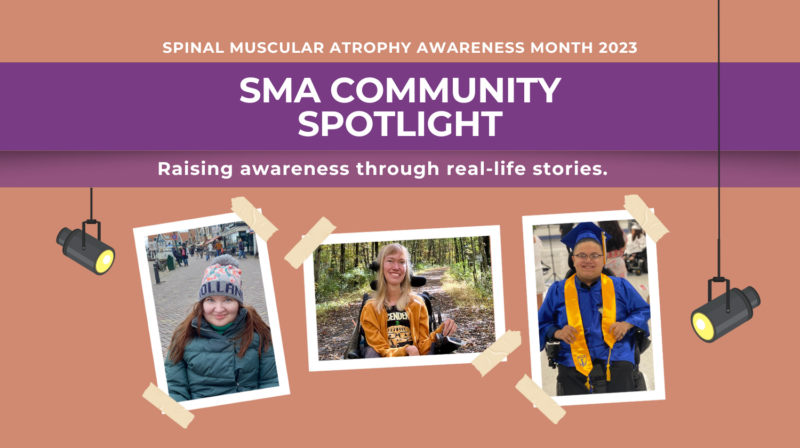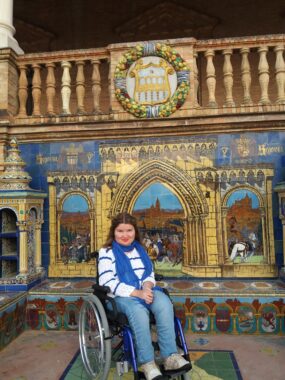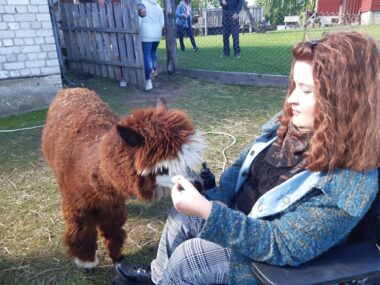More accessible areas can mean freedom for people with disabilities


Alina Poklad enjoys traveling, including her trip to Seville, Spain. (Photos courtesy of Alina Poklad)
This is Alina Poklad’s story:
I was born in Estonia, which was a part of the Soviet Union, and it became an independent country when I was 5 years old. When I was in first grade, the school committee didn’t want to enroll me in school because of my disability. Today, it is the norm that children in wheelchairs study at the same school with their able-bodied peers.
I have spinal muscular atrophy (SMA). All my life I’ve depended on other people, but it doesn’t mean that I cannot study, work, or travel.
Since fourth grade, I have studied from home as there were no accessible schools and it became too hard for my parents to lift me every day. I was the exception. After my high school graduation, the law was changed to allow students with disabilities to be educated from home. My school became accessible, but this happened after my graduation.

Poklad tries to stay warm in the Netherlands.
At university, I wanted to study something in the humanities (literature or psychology) but only technical university was partially accessible, so I studied information technology instead. I had to choose job offers based on the accessibility of buildings and not based on my preference.
All my life I’ve had to prove to myself, and to society, that it is possible to live a full life with a disability like SMA. You just have to do double duty to organize your life and think about a hundred details. And yes, sometimes you are restricted in your choices. But in a broad sense, everyone is restricted in their choices, if not by their bodily limitations then by their fears, by money, or for some other reason.
People often ask me how I, as a person with a disability, found a job and avoided bullying at school. I answer that I was always very open about my disabilities. Able-bodied people do not often have experience with disabled persons, especially with such rare genetic diseases as SMA. In all new groups of people, even in a job interview, I explain my limitations, the disease I have, and the help I may need before somebody even tries to ask.

Poklad is open to fun experiences, including those with animals.
My next step was studying abroad in the United States, which in terms of accessibility, is about a decade ahead of Estonia. In the U.S., I have felt what it means to be free in my choices.
I hope all people with disabilities will not be afraid to struggle to ensure they have choices, even if sometimes this idea seems far-fetched, as it was for me earlier in my life.
In recognition of Spinal Muscular Atrophy Awareness Month in August, the SMA Community Spotlight campaign features a series of stories highlighting the real-life experiences of people affected by SMA, written in their own words. Follow us on Facebook and Instagram for more stories like this, using the hashtag #SMASpotlight, or read the full series.
The post More accessible areas can mean freedom for people with disabilities appeared first on SMA News Today.



